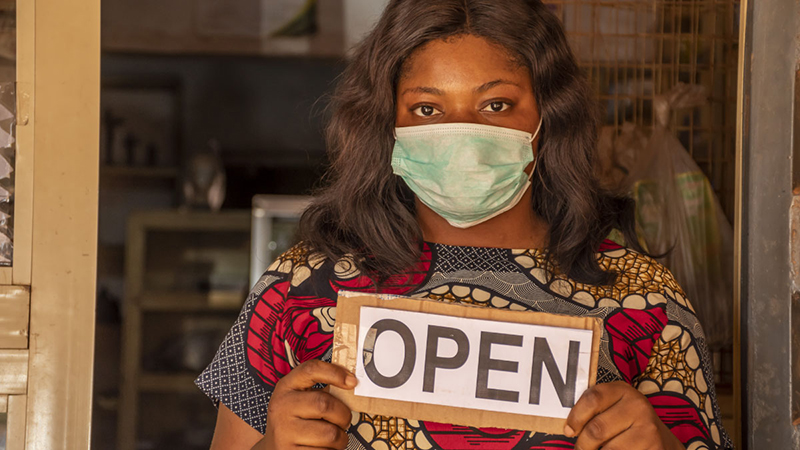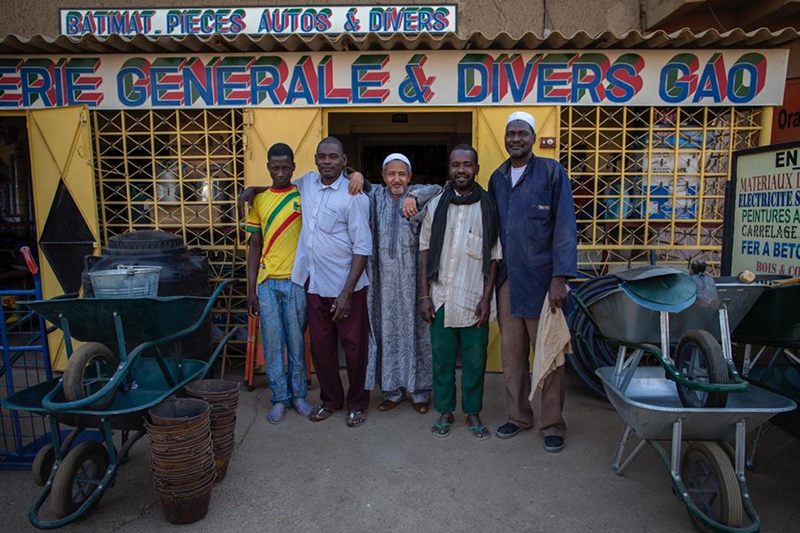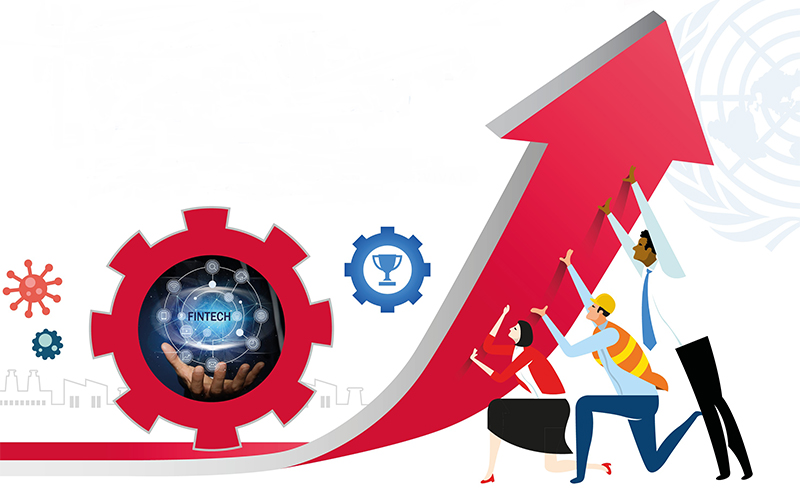UNCTAD is leading the global initiative towards post-COVID-19 resurgence of the micro, small and medium enterprises (MSME) sector developed under the UN framework for the immediate socioeconomic response to the pandemic. Dubbed the MSME Surge project, it seeks to strengthen the capacity and resilience of MSMEs in developing countries and economies in transition to mitigate the economic and social impact of the pandemic. It’s implemented in partnership with several UN entities and regional economic commissions, including UN DESA, UNESCWA, UNECE, UNECA, UNESCAP and ECLAC.
Targeted services
The project provides targeted advisory and capacity-building services to governments and entrepreneurs to facilitate resurgence and strengthen the capacity and resilience of MSMEs to mitigate the economic and social impact of the global COVID-19 crisis.
The project follows a coherent approach based on the Entrepreneurship Policy Framework (EPF) of UNCTAD. In 2021, it promoted entrepreneurship skills, disseminating business management knowledge, focusing on the areas that are critical for MSMEs’ green and sustainable recovery.
MSMEs received immediate and short-term interventions thanks to the establishment of the first iteration of a virtual knowledge hub offering all policy tools, training material and capacity-building toolkits developed in the framework of the project to support them to address COVID-19 related challenges. As a result, over 75% of policymakers and other stakeholders from beneficiaries of the knowledge hub and network confirmed that the project had improved their capacities on formulating and implementing enabling policies in the context of COVID-19 resurgence.

Empowering entrepreneurs

At the same time, the project delivered capacity-building activities for entrepreneurs. In partnership with Empretec national centres and international master trainers, over 200 Empretec certified trainers from 25 countries were equipped with updated or new tools and methods to further develop and strengthen much-needed entrepreneurial skills tools to facilitate MSMEs’ post-COVID-19 resurgence. The capacity-building activities also targeted entrepreneurs within vulnerable groups, such as people with low literacy skills and rural entrepreneurs. This yielded immediate positive results.
The project also promoted the exchange of experiences, success stories and best entrepreneurial practices through the organization of live sessions/webinars in partnership with a network of Empretec centres in 10 countries. Through the sessions, 370 entrepreneurs and former Empretec beneficiaries shared how they adapted their business practices using the Empretec competencies framework and survived or even made profits despite the pandemic. Other undertakings in support of entrepreneurship and business skills facilitation included e-learning courses and exchange of good practices on digital, green, agri, blue, inclusive and resilient entrepreneurship, reaching over 2,500 participants.
Formalizing small businesses
Further leveraging on the EPF, the project facilitated MSMEs’ registration and formalization, supported them in their business activities and/or enabled them to benefit from relief measures. In El Salvador, through Cuentamype.org, a platform where MSMEs can register and access digital services, the project allowed them to access a $600 million COVID-19 rescue package aimed at assisting small businesses affected by lockdowns.
Evidence showed that between June and July 2020, the number of users to the platform increased two and a half times, with 56% of those who registered through the new portal being women, reflecting how online portals made government services more accessible to vulnerable groups. In the same workstream, the project supported the Gambia and Kenya to improve their policy environment for MSME formalization.
Improving access to finance
The project facilitated access to finance by adequate reporting, not only on economic performance but also on sustainability issues.
To improve MSMEs access to finance, the project developed an accounting training manual focusing on micro and small companies. The training focused on improving financial literacy for entrepreneurs, including their understanding of accounting, financial analysis and common requirements to access financing.
To expand outreach, in 2021, the project conducted training of trainer workshops for 382 participants from 39 countries in English, French and Spanish.
In addition, based on UNCTAD’s guidance on core indicators for entity reporting on contribution towards implementation of the Sustainable Development Goals and a training manual on its implementation, the project conducted six online workshops, which benefited 429 participants from 26 countries.
Also, the development of an e-learning course on core SDG indicators began under the project.




